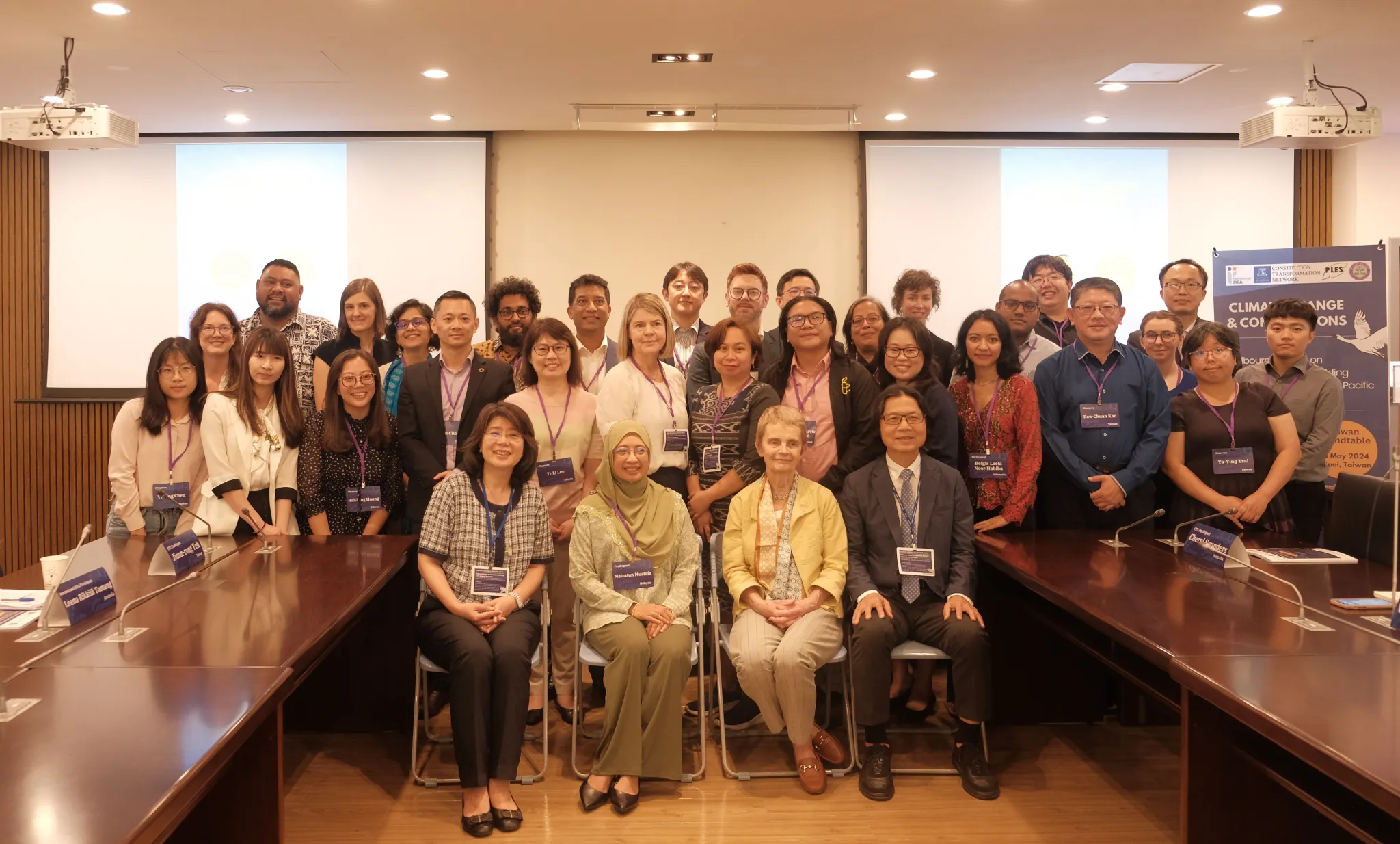Climate Change and Constitutions: Insights from Asia & the Pacific

The Eighth Melbourne Forum on Constitution Building in Asia and the Pacific brought together scholars and practitioners to Taipei, Republic of China (Taiwan) to examine the defining global challenge of our time - climate change - from a constitutional perspective. Our region is highly affected by a changing climate, posing risks to the livelihoods of peoples and in some cases, the very existence of states. But countries in the region have also developed innovative constitutional practices that seek to address the harms and risks of climate change.
Over two days, experts discussed two, interrelated, sides of the theme ‘Climate Change and Constitutions’. On one side, climate change presents enormous challenges to democratic constitutional systems, impacting on the quality of representation and government decision making. On the other side, constitutions can provide a framework from within which governments can take action to address climate change. Across four sessions, participants from 16 diverse countries in the region examined constitutional mechanisms to promote representation and participation, encourage the implementation of international commitments, amend constitutional texts, and facilitate climate change litigation.
One of many issues discussed at the Forum was the way in which the long-term and cross-border nature of climate change presented real challenges for representative democracy.
Sharing insights from Taiwan, Chun-Yuan Lin highlighted the often-opposing demands citizens may place on their representatives regarding climate policy. While many expect their government to address the climate crisis, they also prioritise their shorter-term, more immediate needs which may be at odds with climate-friendly policy changes. “For example, people support renewable energy but oppose the increase of electricity prices and the decommissioning of nuclear power plants,” said Lin.
Belgis Laela Noor Habiba, an Indonesian climate campaigner, also underscored the juxtaposition between vested interests and future-focused policy making. Noting that Indonesia is already experiencing notable impacts from climate change, including the need to relocate the sinking capital of Jakarta, Habiba pointed out that parliamentarians may often act in pursuit of their own (financial) goals rather than the common, longer term, good of the populace.
The prevalence of parliamentarians with business interests creates significant conflicts of interest when they are creating and voting on laws that impact business sectors. Despite this, she highlighted an active civil society pushing for stronger legislation to combat climate change.
While both Taiwan and Indonesia contribute proportionally little to global emissions, regional heavyweight India is now the third highest contributor to greenhouse gases (although ranking comparatively low on a per capita basis). Shibani Ghosh pointed out that the country’s commitments have not aligned with the pace of its energy economy.
“More than 57% of the country’s primary energy supply is being sourced from coal, and India has not committed to phasing it out. In its national determined contribution (NDC) submitted to the UNFCCC in August 2022, India committed to reducing its emissions intensity by 45% below 2005 levels by 2030 (excluding Land Use Land-Use Change and Forestry and to increasing the share of non-fossil power capacity to 50% by 2030. I. The Prime Minister has also pledged a net zero target by 2070 at COP26 in 2021,” according to Ghosh. She added that despite the country experiencing several major climate disasters, including droughts, heatwaves and floods, and the frequency of extreme weather events increasing, climate change is absent as an explicit issue in the country’s national elections in 2024. Defining Climate Change as environmental problem is a big mistake – it is not, and it gets deprioritised.” In terms of institutions; “People still look up to the judiciary. It is unelected, unaccountable, but civil society approach the judiciary for resolution.”
Other challenges for representation arise from the complexity of the problem. Climate change affects every area of life, requiring a high degree of coordination within government bureaucracies, and across international, national and sub-national levels of government. Responses to climate change at the international level also affect democratic representation, for example when external institutions dictate priorities and frameworks for climate change mitigation and adaptation, sidelining local expertise and needs in the process.
Participants discussed potential ways forward to address these problems of representation. One suggestion was to frame the nature and scale climate change in ways that resonate with the people of the country concerned and which did not reduce climate change to an environmental issue that could be easily dismissed or outweighed by other interests.
Another important fundamental aspect identified in discussions was open and inclusive civic space, in which government action (and inaction) on climate change could be freely discussed and criticised by all those affected, including the most vulnerable to harms arising from climate change. Additionally, constitutions themselves might be amended and implemented to promote greater inclusion and representation. Some examples in the region that were discussed include a constitutional right to participate in decision-making on issues that affect the environment and decentralised decision making to increase meaningful participation and climate policies that are adapted to the specific needs of local communities.
The Eighth Melbourne Forum was jointly organised by International IDEA’s Regional Programme for Asia and the Pacific, the Constitution Transformation Network at Melbourne Law School, and the Policy and Law Center for Environmental Sustainability (PLES) of the National Taiwan University College of Law. It was co-funded by the National Science and Technology Council of and International IDEA.




